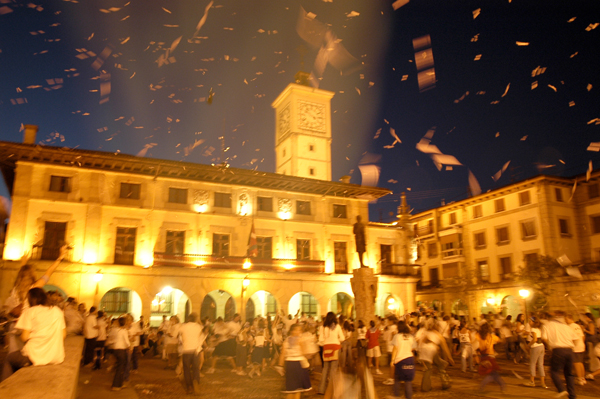Art Invites!

Photo Credit: Chilean art collective Casagrande, 2004
By Cindy Cohen, Director,
Peacebuilding and the Arts, Brandeis University
In 2021, a team of researchers and thought partners affiliated with IMPACT completed a multifaceted inquiry into the contributions of arts and culture to the transformation of complex challenges. The inquiry resulted in a series of research memos synthesized into a report (pdf). Taken as a whole, the report offers an original framework for understanding the transformative power of artistic and cultural processes. It illustrates how such processes can be crafted to meet the demands of the complex challenges that are confronting humanity and our planet in the current moment: challenges related to the climate crisis, gross inequalities based in part on legacies of colonialism, the rise of authoritarianism, the pandemic, gender-based violence, and more. Artistic and cultural initiatives can be designed to evoke honesty and paradoxical curiosity, to unleash agency and creativity, and to affirm human dignity and our interdependence with each other and with the natural world.
Artistic and cultural processes can be crafted to do all this, not by manipulation or coercion, but by issuing respectful invitations to engage, enjoy, co-construct meaning and be present. These invitations are issued through the aesthetic dimensions of both processes and engagements with artistic products that are designed to enliven, challenge and/or soothe. It is through their beauty, and through the ways they simultaneously animate our sensory, cognitive and emotional faculties, that ethical arts and cultural work invite transformations that respect the integrity of all involved. They can be crafted to offer a bounty of possibilities, and in fact, they are indispensable to engaging constructively with the intertwined complex challenges urgently calling for attention. (adapted from p.7, Invite | Affirm | Evoke | Unleash)
In 2022, Peacebuilding and the Arts Now will focus on the report's four themes — invite, affirm, evoke, unleash — one theme in each of the four newsletters we intend to produce this year. In this issue, we focus on the transformative power of issuing invitations. Artistic and cultural processes issue invitations through their aesthetic dimensions, by the ways that they simultaneously animate sensory, cognitive, emotional and spiritual faculties, and through the compelling aspects of their formal qualities — the rhythms, textures, colors, patterns, tastes, shapes, pitch and timbre, etc. — that capture our imagination.
To further explore the relevance of the invitational quality of the arts and culture with the current moment, we convened a small story circle that included Armine Avetisyan and Ameer Shaheed who authored the relevant research memos in the report, along with other members of the extended Peacebuilding and the Arts community, Jane Wilburn Sapp and Victoria Gandini. Our stories and discussion touched on many themes, ranging from our experiences of beauty in nature (especially in listening to birds), to the beauty we experience in moments of connection, to examples of finding beauty in negotiating darkness, to the creation of beauty as a source and a demonstration of resilience in communities facing the most dangerous of circumstances.
One way that aesthetic experiences seem to be aligned with the challenges of the current moment is their ability to hold both darkness and light, to honor the shadows and radiate light at the same time. In this way, they support our resilience. They help us develop our capacity to be curious about the paradoxical nature of things that might, at first, seem opposed — a key capacity required to engage productively with complexity.
We also discussed the spiritual dimension of our lives —how creativity seems to connect us to our own and each other's divinity. Jane Sapp concluded our conversation with a rendition of the first verse of an old spiritual she learned as a child:
This joy I have: the world didn’t give it to me
This joy I have: the world didn’t give it to me
This joy I have: the world didn’t give it to me
Oh, the world didn’t give it and the world can’t take it away.
—And then it goes 'This song that I have' and it keeps adding those things that are beautiful and spiritual that live inside of you, and those things, yeah, the world can't take them away."